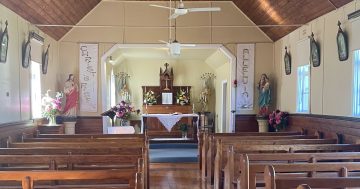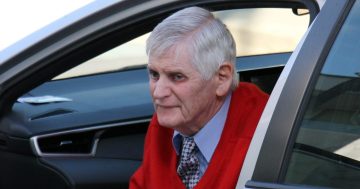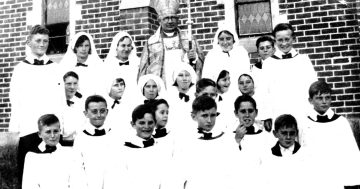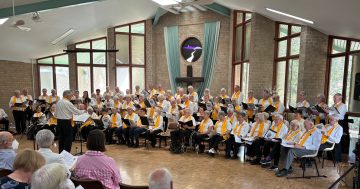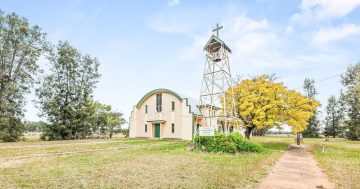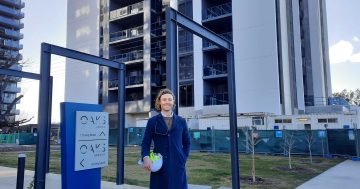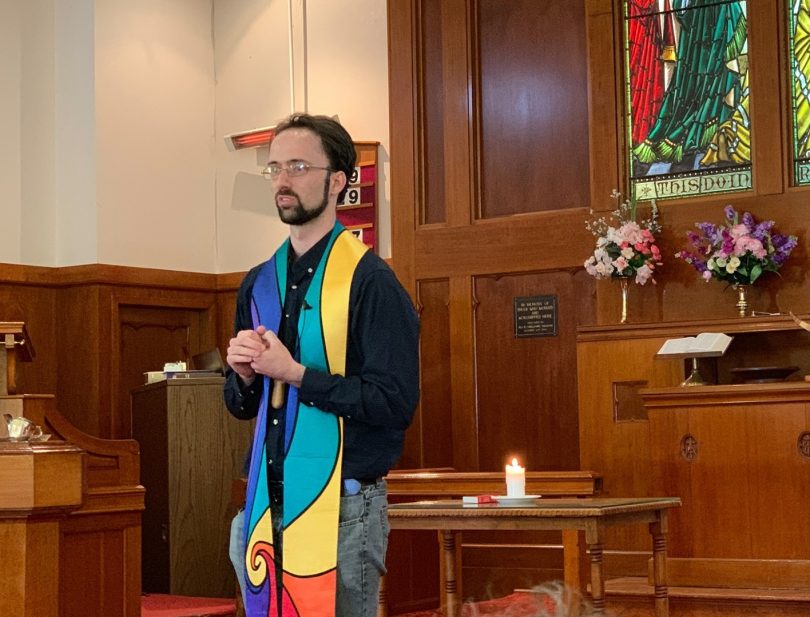
Crookwell and Goulburn District Uniting Churches’ Minister Daniel Mossfield during service. Photo: Supplied.
When I was a child, my family went to church every Sunday. We would have been outsiders if we didn’t.
It was a sign of the times in the 1990s, but we were also a country community of about 300 who did everything together – birthdays, Christmas, the Millennium, even snow days.
I remember some of the Christian teachings but, above all, I vividly recall the oranges we decorated with lollies to represent the people of the world, the colourful pictures we drew at youth club and the singing.
A lot of singing.
It was a time of friendship and community. Everyone came together.
However, as the years grew so did the time between each church visit and we’d stopped going by the time I was eight years old.
More and more people were questioning their beliefs and trust in the church. Individualism was favoured and being Christian no longer meant attending church every week.
It’s only since returning to a small country village in my 30s that I’ve begun to wonder how important that time was.
There are three churches here in Bigga, in southern NSW. However, the Catholic church stands empty and silent, the Uniting Church is about to hit the market, and the Anglican church holds a quiet, monthly service.
It’s hard to imagine a time when the whole village came and played golf across the road after service, or so I’m told.
It’s not the loss of spirituality I’m worried about, but the loss of connection, the loss of the church’s power to pull everyone together.
It seems impossible to get even a small group together these days, yet reports of loneliness, anxiety and depression are at an all-time high.
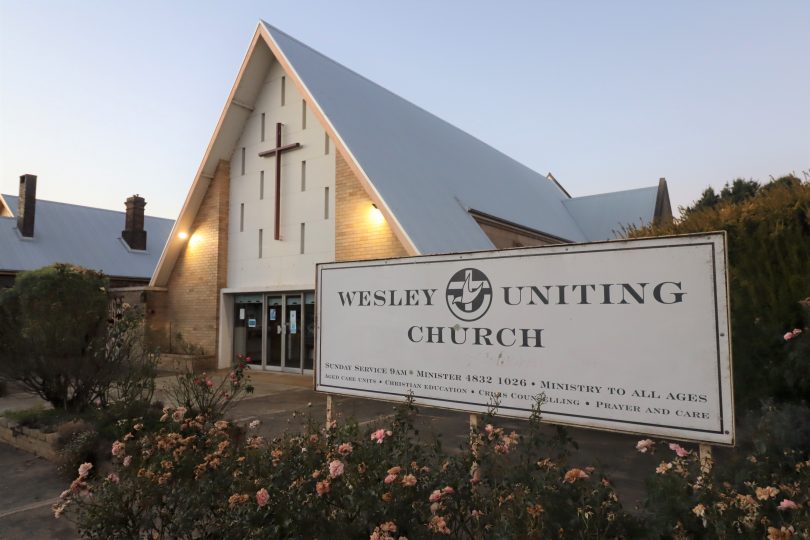
Wesley Uniting Church in Crookwell. Photo: Hannah Sparks.
According to the last Australian census, in 2016, fewer than one in seven of the 61.6 per cent of Australians who identified as Christian said they regularly attend church.
Why?
While 18 per cent told McCrindle Research they were too busy to attend, the majority – 47 per cent – said it was no longer relevant to their lives.
As a result, churches are closing and ministers are becoming few and far between.
Daniel Mossfield is the only ordained Uniting Church Minister remaining in the NSW Southern Tablelands, and he will soon be responsible for the largest parish in NSW, an area spanning at least 130km – from Bigga in the north to Gundaroo in the south, with Goulburn, Crookwell and Gunning in between.
Census data shows 200 people identify as Uniting Church, 800 as Anglican and 900 as Catholic in Crookwell alone, but Daniel says he sees an average of 35-40 people at congregation each week.
Likewise, Crookwell Anglican Minister, Reverend Wayne Landford, says he welcomes 45-50 people each Sunday morning.
Congregation numbers are low enough that Daniel and Wayne sometimes hold services with the Catholic church – something once considered a sin.
The pair has been worried about the loss of community interaction for a long time, but even more so during COVID-19 when churches were forced shut.
“Some people have changed from being extroverts to introverts because they haven’t had connection with other people so there hasn’t been anything to draw them back out of their shells,” says Wayne.
Fewer people in attendance has also forced the church to reconsider its place in the community, says Daniel.
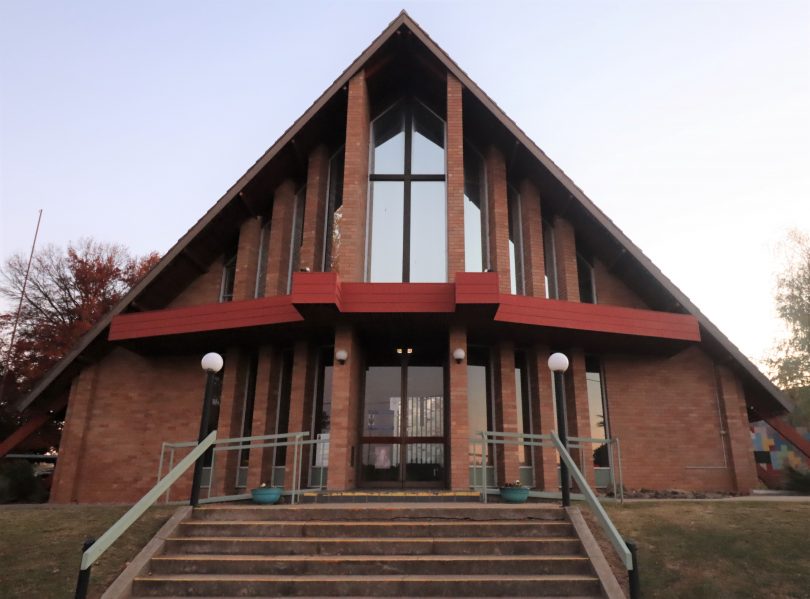
Anglican Church of St Bartholomew in Crookwell. Photo: Hannah Sparks.
“I think the church has failed to meet the community’s needs and that reflects, in part, our declining numbers,” says Daniel.
“For the best part of 1500 years, we had conventional Christianity. The church got into bed with the state and did deals with governments all over the world to be at the centre of power. The government forced people to go to church and people came to church because that’s what you did.
“But belonging to an institution is no longer the norm and lets us get back to being a church. We can get back to walking with people through the highs and lows of life.”
Both ministers have stepped outside the box to prove the church can meet the community’s needs.
Daniel has created a service specifically for the LGBTIQ+ community; as well as a Grace community that’s re-exploring what it means to be people of faith in everyday life by holding Outdoor Adventure Church and The Den (a gaming church); and a playgroup for new mothers who had nowhere else to go through COVID-19.
“It’s about being a community,” says Daniel.
Similarly, Wayne has organised a Christmas lunch for people who have nowhere else to go, and a Friday night cooking class intended for widowed men but it is popular with teenagers.
“Some of the people who come don’t have a faith and I’m cool with that,” he says. “It’s not about forcing people into faith, it’s about connecting people.”
However, both are worried about small, regional places, such as Bigga, where the church is one of few remaining community services. They say community spirit is often the reason people still attend.
“Any growth I’ve seen in services is from people who have moved here permanently and are looking to find community and connection,” says Daniel. “I had an instant community as soon as I arrived here five years ago so I do think there is something lost by us losing churches at the centre of communities.”
Original Article published by Hannah Sparks on About Regional.












